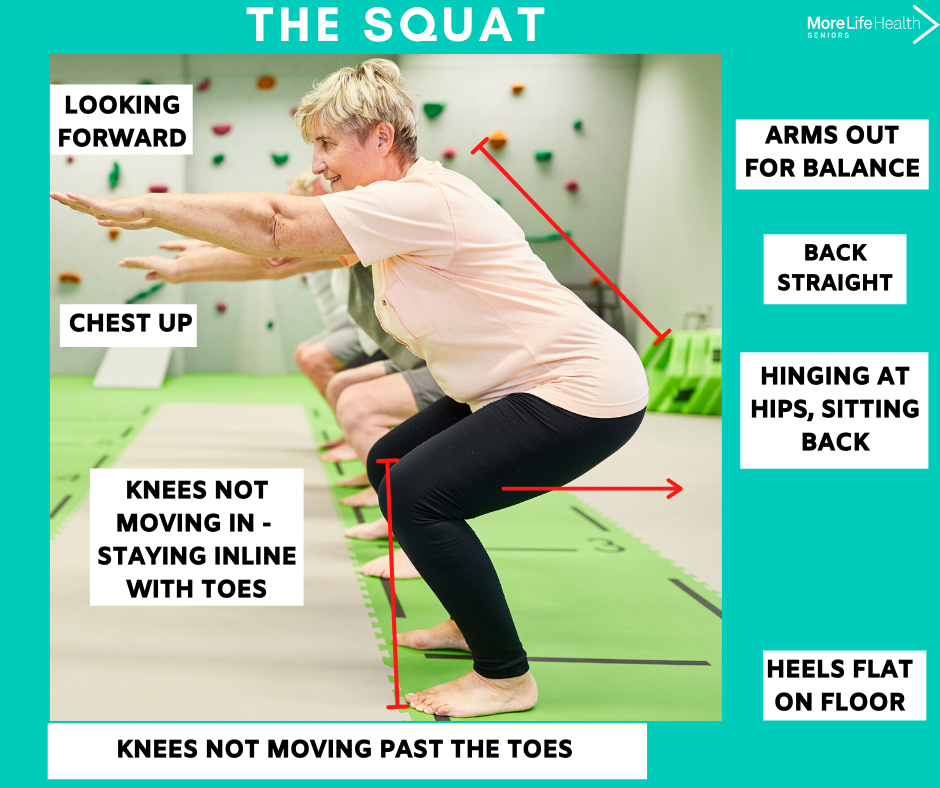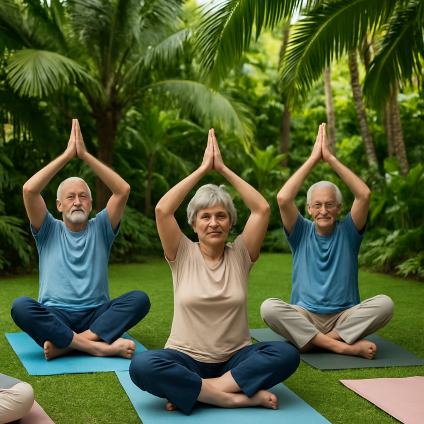Welcome To Healthysport!
Exercise Progression for Adults
- Details
- Written by: Healthysport
- Hits: 291
Exercise progression for an older adult, moving from very light → moderate, focused on safety, function, and independence rather than athletic performance.
🟢 Stage 1: Very Light / Starting Point
(For beginners, pain, fatigue, or recent inactivity)
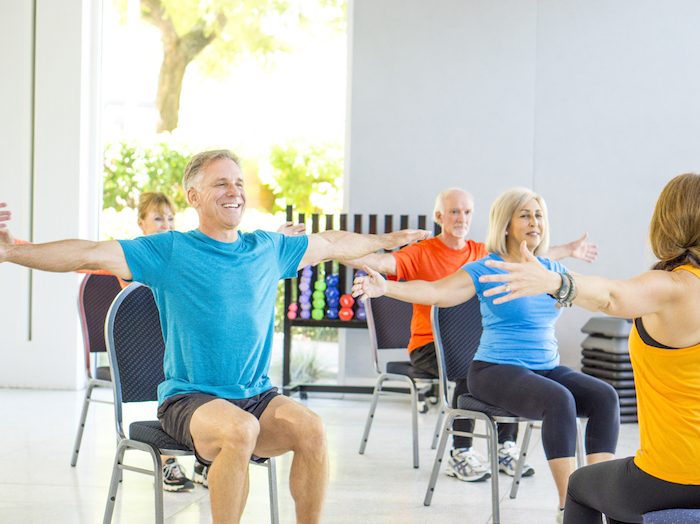
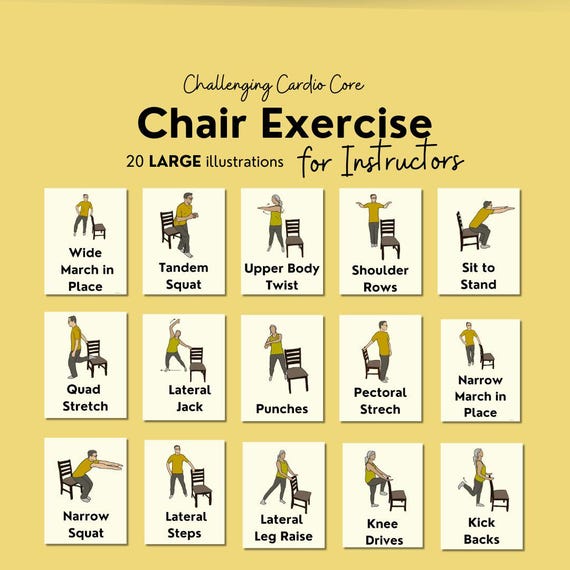

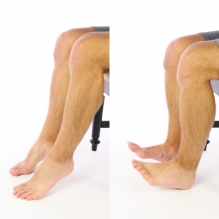
Goals
-
Wake up joints and muscles
-
Improve circulation
-
Build confidence
Examples
-
Seated leg lifts
-
Ankle pumps
-
Light resistance band pulls
-
Gentle range-of-motion movements
✔ Evidence shows even seated movement improves circulation, joint health, and glucose control in older adults.
🟡 Stage 2: Light but Functional
(When daily movement feels easier)
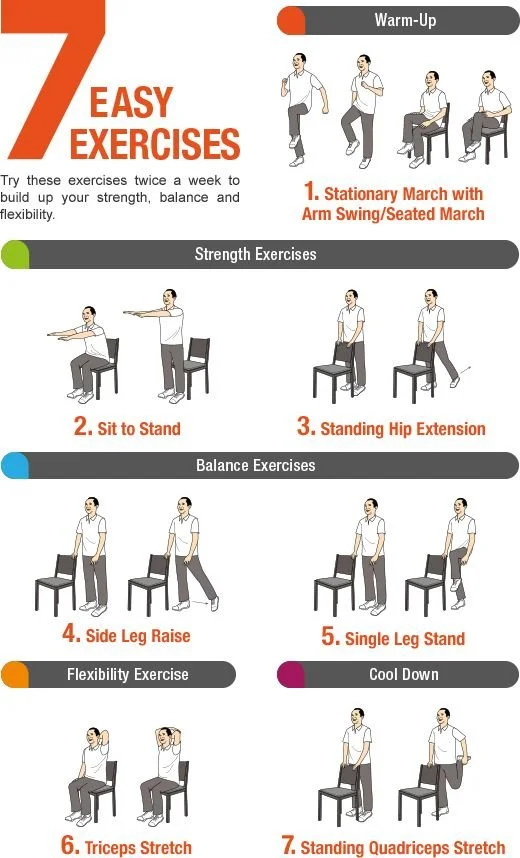
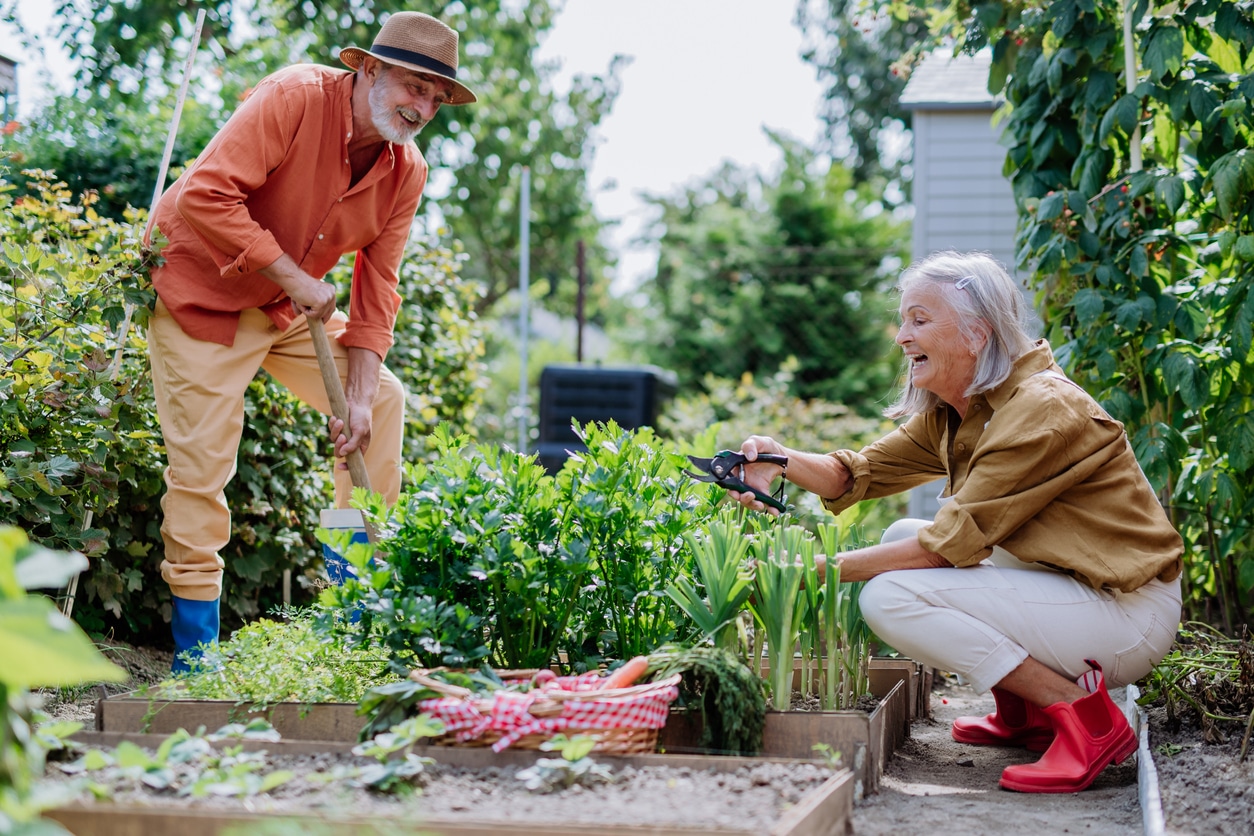

Goals
-
Improve balance and coordination
-
Strengthen muscles used in daily life
Examples
-
Standing leg exercises
-
Low step-ups
-
Gardening, lifting light pots
-
Balance work holding a chair
✔ Functional exercises reduce fall risk and improve independence (supported by geriatric rehabilitation studies).
🟠 Stage 3: Moderate Strength & Endurance
(Still safe, still controlled — no extremes)
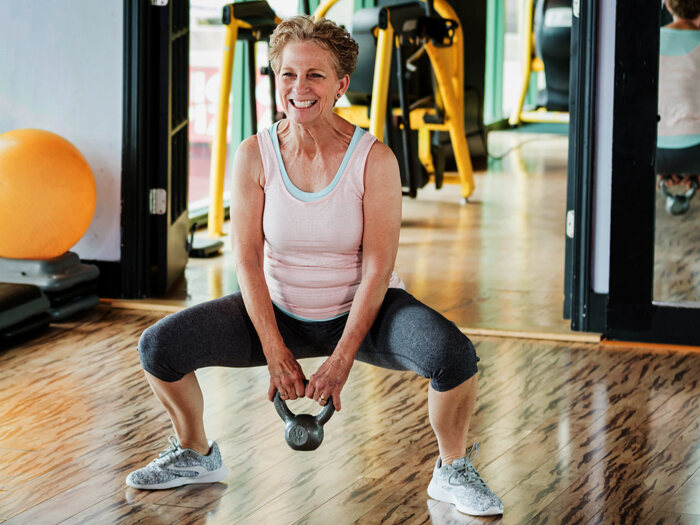
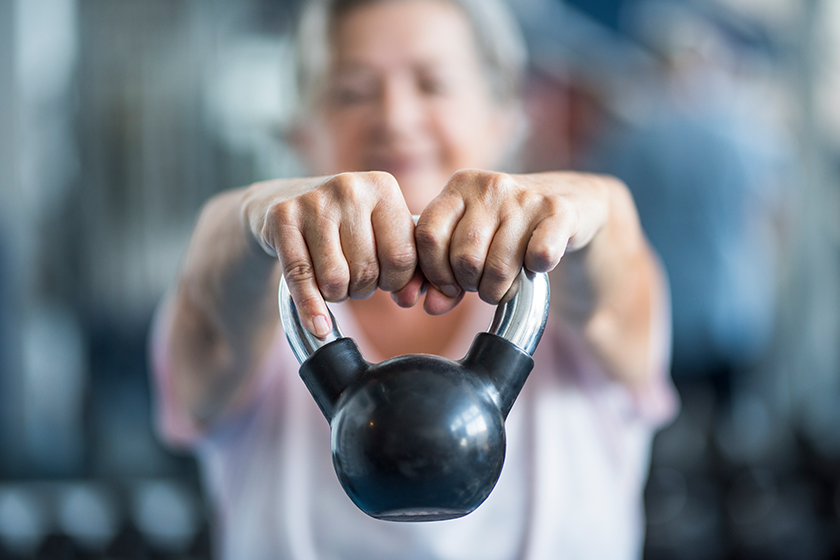
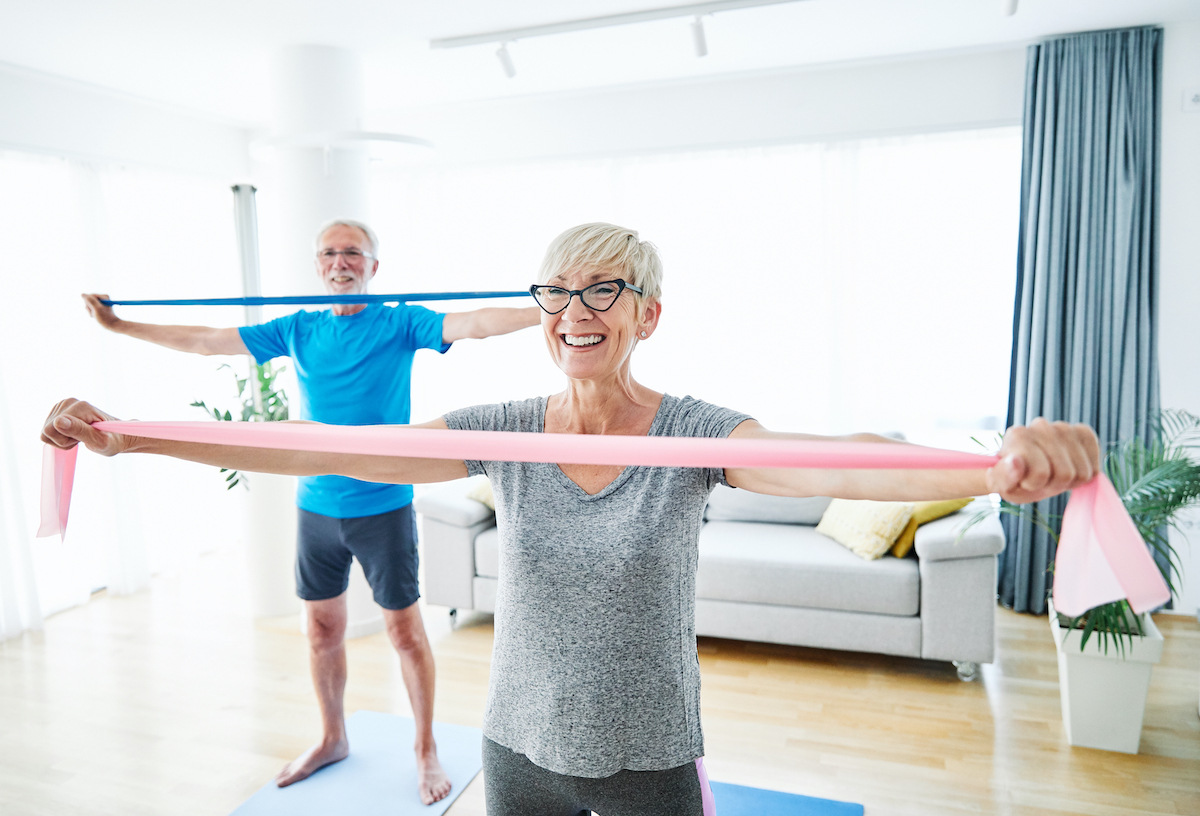
Goals
-
Maintain muscle mass
-
Support joints affected by arthritis
-
Improve metabolic health
Examples
-
Light kettlebell or dumbbell lifts
-
Resistance band rows
-
Supported squats or sit-to-stand
-
Short walking sessions with purpose
✔ Studies show moderate resistance training improves strength, insulin sensitivity, and joint stability in older adults.
🔵 Key Message (Visual Takeaway)




-
Exercise intensity is personal, not competitive
-
Progress slowly, based on how the body feels
-
Light exercise is good — progressed exercise is better
-
Avoid both inactivity and overexertion
Movement does not need to look impressive to be effective.
Consistency, creativity, and self-awareness matter more than speed, weight, or comparison.
Cortisol: A Senior’s Trusted Helper—and a Hormone to Handle With Care
- Details
- Written by: Healthysport
- Hits: 355
As we age, our bodies change in ways that sometimes feel unpredictable. One hormone that plays a major role in how seniors feel from day to day is cortisol, often called the stress hormone. But cortisol isn’t just about stress—it is essential for staying alert, energized, and stable.
For older adults, understanding how cortisol works can improve sleep, energy, mood, and overall health.
What Cortisol Does for Seniors
Cortisol is a glucocorticoid hormone produced by the adrenal glands. It works closely with the brain through the HPA axis to help the body respond to daily challenges.
In a healthy pattern:
-
Cortisol is highest in the early morning, helping you wake up and get moving.
-
It slowly decreases throughout the day.
-
It is lowest at night, allowing melatonin to rise so you can rest and recover.
For seniors, this rhythm is especially important because it helps regulate:
-
Energy levels
-
Blood sugar stability
-
Blood pressure
-
Inflammation control
-
Mental clarity and memory
This is why, on a good day, you feel steady and capable. Cortisol is quietly supporting you.
When Cortisol Helps You Through the Tough Moments
Cortisol is your ally when:
-
You need to stay calm during a stressful appointment
-
You must drive in heavy traffic
-
You handle a difficult phone call
-
You push yourself through a physical task like reorganizing a closet or helping someone in an emergency
-
You feel anxious about a medical result or an unexpected life event
-
You need extra energy to get through a challenging day
It also gives seniors the temporary strength to react quickly—like catching yourself during a slight loss of balance or responding instantly to a crisis.
Cortisol helps keep you safe.
But Too Much Cortisol Can Work Against You
Cortisol is meant to rise briefly, then come back down. But many seniors live with ongoing pressures:
-
Caring for a spouse or family member
-
Financial worries
-
Health concerns that never fully stop
-
Chronic pain
-
Loneliness or lack of support
-
Overstimulation from noise, crowds, or social media
-
Difficulty setting boundaries with stressful people
When the brain feels “on alert” all day long, cortisol stays high—even at night, when it should be at its lowest.
What happens when cortisol remains elevated?
Scientific studies show several effects:
-
Poor sleep or trouble staying asleep
-
Higher blood sugar (Sleep Medicine Reviews, Buckley & Schatzberg, 2005)
-
Weakened immunity and slower healing
-
Higher blood pressure
-
Fatigue that doesn’t improve with rest
-
Difficulty concentrating
-
Increased abdominal weight
-
Greater anxiety or irritability
Research in Neurology (2014) also shows that long-term high cortisol can affect parts of the brain responsible for memory and emotional balance—something many seniors notice during periods of prolonged stress.
Why Sleep Matters Even More as We Age
Cortisol and melatonin work like partners. When cortisol is high at night, melatonin stays low, and sleep becomes shallow or fragmented.
Seniors who spend evenings worrying, watching upsetting news, scrolling on social media, or replaying stressful interactions often experience:
-
Difficulty falling asleep
-
Early morning awakenings
-
Racing thoughts
-
Fatigue throughout the next day
Over time, this disrupts the entire circadian rhythm, making you feel “tired but wired.”
Simple Ways Seniors Can Help Balance Cortisol
Even small daily adjustments can calm the HPA axis and allow cortisol levels to return to a healthy rhythm.
1. Create a Gentle Evening Routine
-
Dim lights an hour before bed
-
Avoid heated conversations or upsetting news
-
Replace late-night scrolling with music, reading, or prayer
-
Keep a consistent bedtime schedule
2. Move Your Body Daily
Research shows that light to moderate exercise reduces chronic cortisol. Examples:
-
Walking
-
Gentle stretching
-
Dancing
-
Gardening
-
Tai chi
3. Build Quiet Moments Into the Day
Short periods of relaxation lower cortisol:
-
Slow breathing
-
Meditation
-
Sitting quietly with a cup of tea
-
Short naps (20–30 minutes max)
4. Stay Connected, Not Overwhelmed
Healthy social interaction lowers stress hormones. But seniors should avoid:
-
Draining arguments
-
Toxic family dynamics
-
Endless online debates
-
Overcommitting to obligations
5. Recognize When Stress Is Too Much
If cortisol-related symptoms persist, speak with a healthcare provider. They can check thyroid function, adrenal health, sleep disorders, depression, and medication interactions.
The Bottom Line: Cortisol Needs Balance
Cortisol is not your enemy. It is your built-in support system—a hormone that gives strength, stability, and resilience.
But for seniors, life’s ongoing pressures can make cortisol work overtime. By understanding this delicate balance and adopting gentle daily practices, older adults can protect their health, improve their sleep, and enjoy a calmer, more peaceful rhythm of life.
Your body has carried you through decades of challenges. Now, it deserves a steady, well-balanced pace—one where cortisol works with you, not against you.
- ANY MOVEMENT WILL DO: Rethinking Exercise, Aging, and Quality of Life
- Reflection Tuesday Morning
- The Gradual Shift
- Retirement: Disowning, Downsizing, Trimming
- Reflection on this Sunday Morning
- Advocacy
- The Mitigation
- Retirement Hobbies and Self Expression
- Cognitive Health: The Other Half of Aging Well
- The Weight of Aging and the Gift of Recovery
Page 3 of 91
